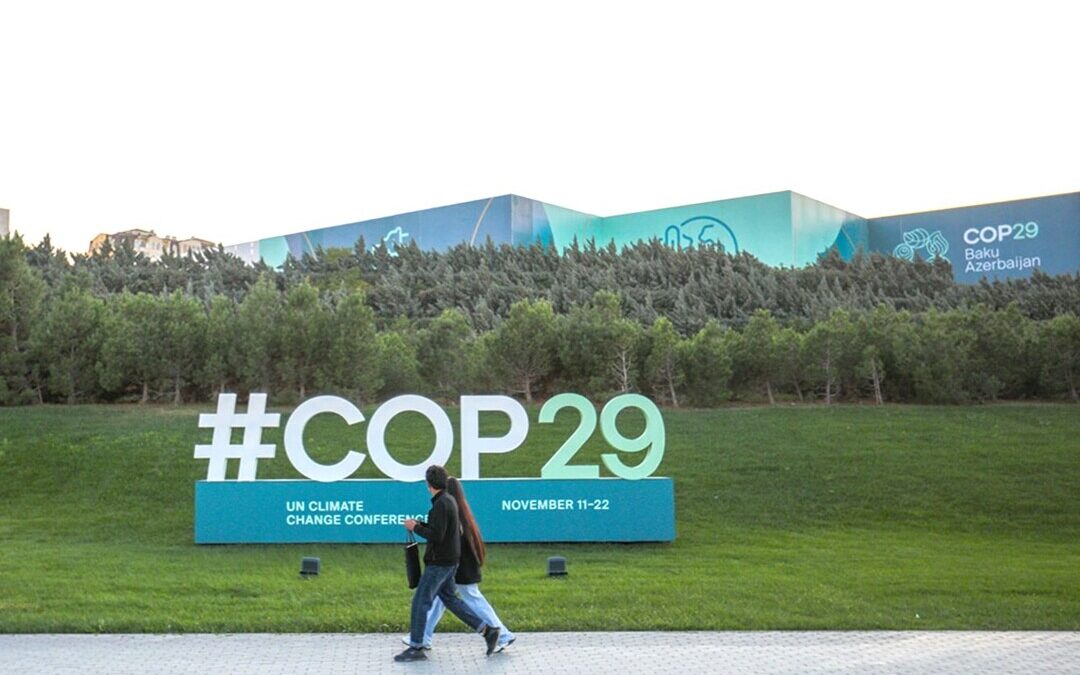UNFCCC Calls for Stronger Climate Action as COP29 Begins in Azerbaijan
The UNFCCC calls on stakeholders to turn climate promises into action, stressing finance, transparency and multilateral cooperation as essential tools for achieving global climate goals.
The UN Climate Change Conference from Nov. 11-22 in Baku, Azerbaijan, will focus on executing the ambitious pledges of the global climate goals made in Dubai last year.
Last year in Dubai, COP28 saw a historic consensus: nations worldwide committed to an orderly, equitable phase-out of fossil fuels in energy systems, alongside setting bold targets to triple renewable energy production and double energy efficiency by 2030.
According to Simon Stiell, executive secretary of the United Nations Framework Convention on Climate Change, countries are serious about these targets and aware that setting actionable parameters is critical to accelerating climate efforts.
Central to this will be establishing a collective quantified goal for climate finance, enabling stakeholders worldwide—both governmental and private—to invest in emissions reduction, resilience building, and adaptation efforts.
Discussions surrounding carbon markets will also be front and center at COP29 as nations explore cooperative strategies to address the universally shared challenge of greenhouse gas emissions.
“Greenhouse gases somewhere are greenhouse gases everywhere,” said Stiell in the Yearbook of Global Climate Action 2024 released on Sunday, underscoring the urgency of multilateral efforts.
This collaborative focus aligns with the Paris Agreement’s vision and the ongoing COP process.
Private participation
An essential aspect of driving progress is engagement from the private sector and other non-party actors, which Stiell said would be indispensable to achieving climate goals.
Private financiers, in particular, are expected to step up following COP29 to support the New Collective Quantified Goal for climate finance.
Stiell stressed that non-Party stakeholders, including businesses and financiers, must signal a clear readiness to support the initiatives and the increased climate ambition needed from national governments.
In 2025, countries will submit a fresh round of Nationally Determined Contributions outlining concrete plans for creating enabling conditions for climate action.
Stiell added that businesses are critical in pushing for ambitious NDCs, particularly in developing nations where the need for investment is urgent.
Such ambition drives opportunity for the private sector and supports vital societal transitions.
Transparent Reporting
Transparency remains a cornerstone of these efforts. Stiell emphasized the importance of transparent reporting by both countries and companies to create accountability, inspire further action, and identify the most effective approaches.
Tools like the Global Climate Action Portal, which documents a vast range of initiatives by non-party stakeholders, are essential for this transparency, alongside upcoming Biennial Transparency Reports and the Net Zero Data Public Utility initiative. These platforms and data utilities can help steer climate action where it is most needed, particularly in developing economies.
The global climate response requires “the involvement of the entire economy and the whole of our societies,” Stiell noted, stressing the importance of collaboration between governmental and non-governmental actors. Such partnerships are championed through initiatives like the Marrakech Partnership for Global Climate Action, which showcases successful climate actions across sectors.
This year’s COP29 Yearbook, capturing examples of progress, provides a blueprint for scaling up action, signaling to policymakers that rapid advancements in the energy transition and resilience building are essential.
Stiell concluded with a call to non-party stakeholders to inform leaders of the needs and scale of support required for effective climate action. This collective input is critical as the world ramps up its climate ambitions, pushing for immediate, impactful implementation at every level, region, and community.

